
Political Thrillers
Brook and Sarah discuss international secrets, scandals, corruption, and other hallmarks of high stakes political thrillers.
Authors, books and, films, and shows mentioned:
Films
All the President’s Men (1976)
Argo (2012)
The Manchurian Candidate (1962)
JFK (1991)
Wag the Dog (1997)
TV shows
24
Designated Survivor
Homeland
House of Cards
Occupied
Murder She Wrote
Scandal
The Tudors
Authors and books
Tom Clancy
Bill Clinton and James Patterson
State of Terror by Hilary Clinton and Louise Penny
The Ghost by Robert Harris
David Baldacci
References
https://www.barnesandnoble.com/blog/10-of-the-best-political-thrillers-ever/
https://industrialscripts.com/political-thrillers/
For more information: cluedinmystery.com
Instagram: @cluedinmystery
Contact us: hello@cluedinmystery.com
Music: Signs To Nowhere by Shane Ivers - //www.silvermansound.com
![[Bonus] Wake Up Dead Man image](https://media.zencastr.com/cdn-cgi/image/width=112,quality=85/image-files/61e1c276e3ec42007857cff9/e276ac32-e664-464f-956c-7699bdb60aa5.jpg)
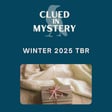

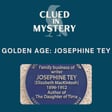
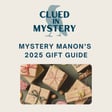


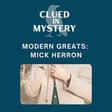

![[Bonus] Read Along: Daughter of Time image](https://media.zencastr.com/cdn-cgi/image/width=112,quality=85/image-files/61e1c276e3ec42007857cff9/b953ad72-c43e-48ca-a18a-b3c216ab90ee.jpg)

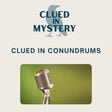
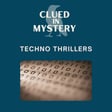
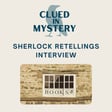
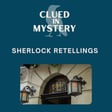


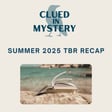
![[Bonus] Thursday Murder Club preview image](https://media.zencastr.com/cdn-cgi/image/width=112,quality=85/image-files/61e1c276e3ec42007857cff9/e51be644-e446-4d32-b89c-12bfc60d30e9.jpg)
![[Re-release] Hallmark Mysteries and More (part 2) image](https://media.zencastr.com/cdn-cgi/image/width=112,quality=85/image-files/61e1c276e3ec42007857cff9/edbc4a22-ebb8-42cb-b211-1f94f4cb920f.jpg)